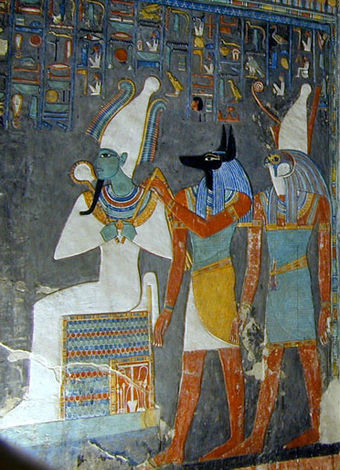 |
| "Who sez we aint real, dude?" |
Some reflections on Mythicism…
Mythicism (the claim that Jesus of Nazareth didn´t exist at all) might not be true, but for some time now, I considered it to be at least a serious contender. Besides, what is the *actual* argument against Mythicism? It seems to be nothing else than a tired (or angry) argument from consensus: “Of course Jesus was a real historical person. I mean, everybody knows that! All claims to the contrary are NONSENSE”. This is the weakest possible argument, almost an emotional state, yet it seems to be the one that is most commonly explicated. Otherwise, anti-Mythicism seems to be based on these three *tacit* assumptions.
Number 1: If it looks like a historical narrative, it must be a historical narrative.
Number 2: A religion must have one founder (and exactly one).
Number 3: There are no problems with objectivity in academe (although almost everyone around here have Christian faith commitments).
Let´s look at these assumptions one at a time.
“If it looks like a historical narrative, it must be a historical narrative”. Perhaps NT scholars should sit down and talk to, I don´t know, archeologists, geologists or biologists. The OT also looks like a real historical narrative – from start to finish – yet we know that it isn´t. The creation story? Myth. The Deluge? Myth. The Patriarchs? Myth. The Sojourn, the Exodus and the Conquest? Myth. Even the evidence for the United Monarchy is surprisingly scanty! And if you are a secular scholar, what about all the miracle stories? They also look historical, don´t they…
The Heimskringla is another example. It certainly sounds like a historical chronicle. Yet, its earliest portions (about the Ynglings) are widely recognized to be mythological. In plain English: they made shit up. The later stories are embellished and anachronistic. Some stories sound like duplicates (compare St Olaf´s crusade with Sigurd´s crusade). In other words, the Heimskringla isn´t 100% historical.
Yet another example: contemporary Swedish writer Jan Guillou´s novels about Arn Magnusson. The plot is set in the Middle Ages and certainly sound real, since it narrates real historical events and describes real people. Yet, Arn is a purely fictitious character invented by Guillou to “fill in the blanks” in the official historical narrative (which is filled with lacunas and mysteries). I wouldn´t be surprised if people 500 years in the future will consider the Arn novels to be actual historical sources – after all, *you can even visit Arn´s tomb*. (It´s the tomb of an unknown Templar in Sweden.)
So tell me again why the NT must be historical, just because it sounds that way?
As for the claim that all religions must have one founder (emphasis on “one”), why is that so obviously the case? Nothing else in world history has “one” founder. Everything happens within a broader context of trial and error. The invention of the calculus. The development of air flight or space flight. Evolutionary theory. None of these things have “one” single founder, the towering genius who emerged de novo as Minerva from the head of Jupiter. So why should religion be any different? The idea that “all” religions (really monotheist religions) have a single founder (the prophet) is a *theological* conception projected onto history. In reality, we already know that Christianity didn´t *really* emerge in this way. For starters, Jesus wasn´t the only Messianic claimant in Palestine. Further, all secular scholars consider Paul, not Jesus, to the real founder of Christianity as we know it today. And if Acts is to be believed, Paul actually had to meet in conclave, pardon, call a “church council”, to work out a compromise with James and Peter. So tell me again that Christianity “must” have one founder?
Besides, we know from contemporary history that religions and political movements can have fictitious founders. So even if we accept the idea of “one” founder, the argument doesn´t work anyway. Who was the real founder of Carlos Castaneda´s cult? Castaneda himself. But the purported founder was a certain Don Juan, a Native shaman Castaneda supposedly met at a bus stop in Phoenix, Arizona! Another example is QAnon. I´m not sure who the real founder of QAnon might be, or if anyone even cares at this point, but the purported founder is clearly fictitious. Q himself doesn´t exist. So we can´t just assume that a religion´s purported founder is its real founder, even when the purported founder is supposed to be a human, rather than an angel from heaven.
As for the argument “surely, somebody would have noticed if Jesus was a myth”, that´s hardly likely. Why should, say, Tacitus have noticed this, and how? And even today, people might not always notice. Imagine if the United States collapses, but Castaneda´s religion survives in, say, China (but not the skeptical takes on his books). The Communist officials arrest some of Castaneda´s followers and write a report about their prophet being a man named Don Juan. 500 years in the future, perhaps some historian will point to this as “independent corroboration” for Don Juan´s existence, when it´s just a retelling of the Castanedaite theology…
As for scholarly institutions being objective, yeah, whatever.
To sum up, none of the three tacit assumptions pass muster. Therefore, the statement that it´s somehow intrinsically absurd to claim that Jesus wasn´t a real historical person with a Roman census number and official place of domicile must be repudiated.
To be continued?
No comments:
Post a Comment